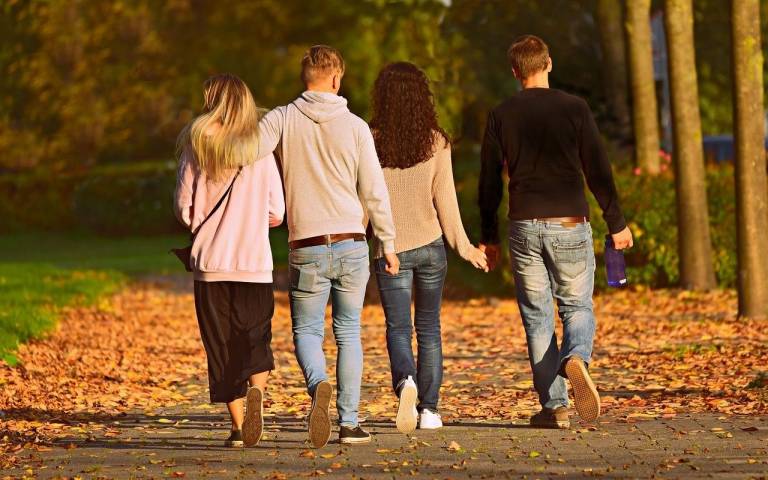Friendships and relationships worsen during Covid-19 lockdown
16 July 2020
A quarter of people have reported their relationships with colleagues and co-workers have worsened over lockdown, and a fifth have said their friendships outside of their household have also got worse, finds UCL’s Covid-19 Social Study.

In addition, 18% of respondents reported a worsening of relationships with their spouse/partner, 20% reported a worsening of relationships with other adults they lived with and 17% with children they lived with. Relationships outside of the household have also suffered, with 19% reporting a worsening of relations with children outside of the home, and 16% with parents or other relatives. Conversely, over a third of adults living with children reported improvements in their relationships, most commonly with their partner/spouse, neighbours, or other adults in their household.
Launched in the week before lockdown started, this ongoing study is funded by the Nuffield Foundation with additional support from Wellcome and UK Research and Innovation (UKRI). It is the UK’s largest study into how adults are feeling about the lockdown, government advice and overall wellbeing and mental health with over 70,000 participants who have been followed across the last 16 weeks.
Worsening relationships were more commonly reported amongst younger adults, with older adults the least likely to report any change. Around 12% of respondents reported the breakdown of a relationship since lockdown began, with adults under 30 reporting this the most and people over 60 the least. More people with a diagnosed mental illness reported the breakdown of a relationship, and the figures were also slightly higher amongst people living alone, people with lower household income, keyworkers, people living with children, and people in urban areas.
Levels of ‘complete’ compliance with lockdown measures have dropped further across all groups over the last fortnight, especially amongst younger adults, but ‘majority’ compliance remains at around 90% in adults over 30 and 80% in adults under 30.
Lead author, Dr Daisy Fancourt (UCL Epidemiology & Health Care) said: “Our study shows that lockdown measures are having a significant toll on people’s relationships, both with people locked down together and those who have been unable to see each other over the lockdown period.
“This is especially true of people with diagnosed mental health issues and younger adults, as well as those with lower household incomes, key workers, those living along and those living with children, all of whom may be facing greater financial or mental pressures which have been exacerbated during the lockdown period.”
Financially, just under half of people reported being in a similar position now as they were before lockdown, with 29% reporting things had got worse and 27% reporting improvements. A fifth of those living comfortably before the lockdown have reported things getting worse, and just 6% “much worse”. This figure rises to 57% reporting things getting worse amongst people finding it very difficult financially before lockdown, and 38% “much worse”.
Cheryl Lloyd, Education Programme Head at the Nuffield Foundation said: "This research shows that relationships with neighbours have improved since the COVID-19 crisis, especially for 30-59 year olds. While this suggests a resurgence in community spirit, it is cause for concern that the survey also show that people who are more vulnerable - those on lower household incomes and those with diagnosed mental health issues - are more likely to report worsening friendships and relationships during lockdown."
The study team has also received support from Wellcome to launch an international network of longitudinal studies called the COVID-MINDS Network. Through the network, dozens of scientists and clinicians are coming together internationally to collate results from mental health studies running in countries around the world and compare findings. The initiative will support launching new mental health studies in other countries and show whether actions taken in specific countries are helping to protect mental health.
Links
- Dr Daisy Fancourt’s academic profile
- UCL Department of Behavioural Science and Health
- Institute of Epidemiology and Health care
- UCL Faculty of Population Health Sciences
- The Nuffield Foundation
- Covid-19 Social Study
Image
Credit: MabelAmber Source: Pixabay (CC.2.0) *Taken pre-lockdown in 2018
Media contact
Jake Hawkes
Tel: +44 (0)7747 565 056
Email: j.hawkes [at] ucl.ac.uk
 Close
Close

